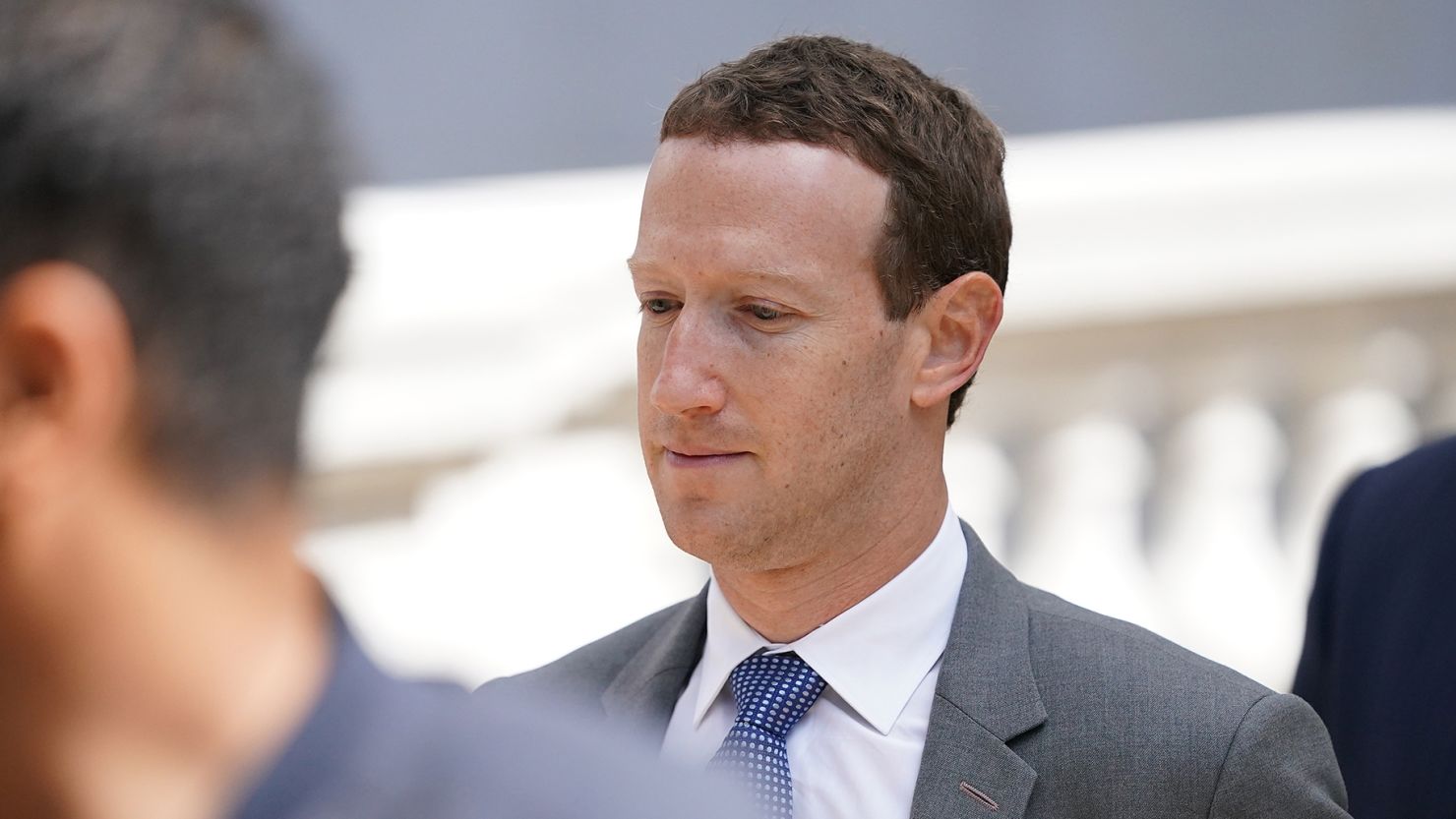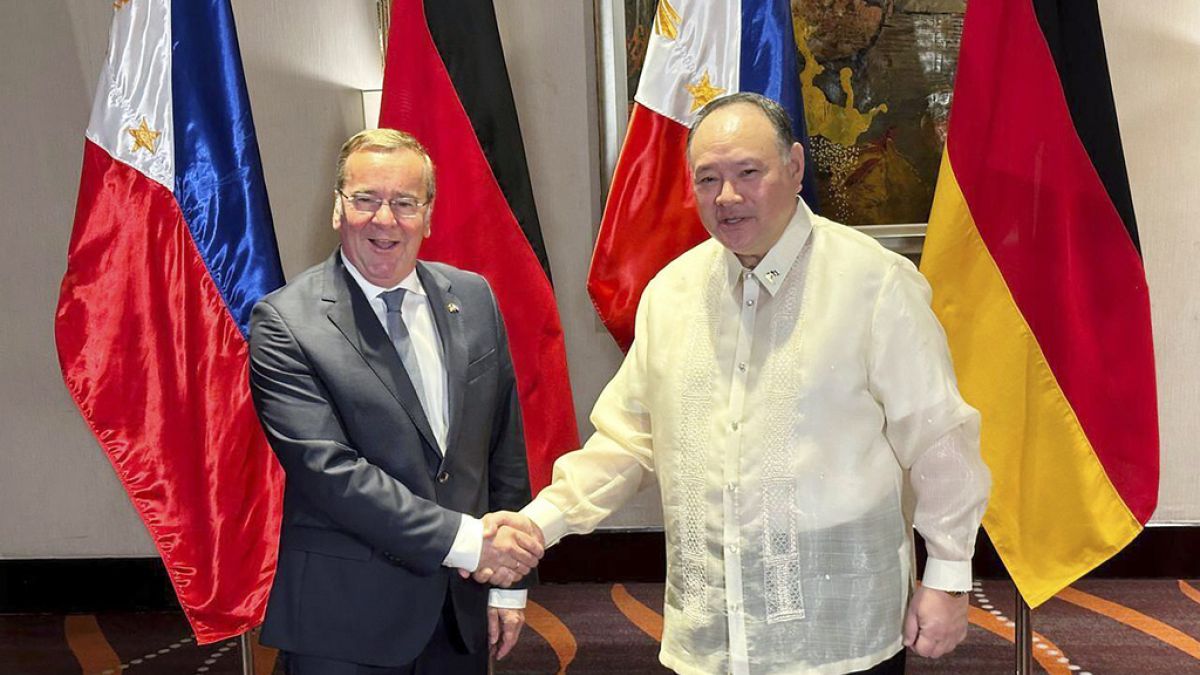How Trump's Presidency Will Shape Zuckerberg's Leadership At Meta

Table of Contents
The Cambridge Analytica scandal, the relentless debates surrounding election interference, and the ongoing controversies over Section 230—all hallmarks of the Trump era—fundamentally altered the operating environment for Meta. These events forced Zuckerberg to navigate unprecedented levels of political scrutiny, impacting his leadership style and Meta's strategic direction in profound ways. This article will examine how the specific policies, events, and overall political climate of the Trump presidency continue to influence Zuckerberg's decisions and Meta's future.
The Rise of Political Polarization and its Impact on Meta's Content Moderation
Trump's presidency amplified existing societal divisions, resulting in a highly polarized online environment. This polarization drastically increased the pressure on Meta to moderate content effectively.
Navigating the Intensified Debate on Free Speech vs. Censorship
Trump's frequent criticism of social media companies for allegedly censoring conservative voices intensified the already fraught debate around free speech versus the need to combat misinformation and harmful content. Meta faced immense pressure to satisfy both sides, a nearly impossible task. Zuckerberg's approach evolved from a more laissez-faire stance to one emphasizing proactive content removal, though this approach often faced criticism from both ends of the political spectrum.
- Policy Changes: Meta implemented stricter policies regarding hate speech, misinformation, and incitement to violence.
- Increased Transparency Initiatives: Meta attempted to increase transparency around its content moderation policies and processes, though these efforts faced skepticism.
- Third-Party Fact-Checking: The company expanded its partnerships with third-party fact-checkers to combat the spread of false information.
The Impact on User Trust and Engagement
The highly charged political climate on Meta platforms impacted user trust. Many users, particularly those on the political fringes, felt their voices were being suppressed, leading to a decline in trust. Conversely, others felt Meta wasn't doing enough to counter misinformation and harmful content. This created a difficult balancing act for Meta, with engagement metrics fluctuating amidst this volatile landscape.
- Decreased Trust: Surveys showed a decline in user trust in Meta's platforms during the Trump presidency, particularly amongst certain demographic groups.
- Engagement Fluctuations: User engagement levels fluctuated, with spikes related to politically charged events and periods of decreased engagement resulting from user fatigue and disillusionment.
- Impact on Advertising Revenue: The political controversies also raised questions about the safety and effectiveness of advertising on Meta’s platforms, potentially affecting revenue streams.
Regulatory Scrutiny and Antitrust Concerns Intensified by the Trump Administration
While the Trump administration didn't explicitly target Meta with aggressive antitrust actions in the same way as some other administrations might have, the overall political climate fostered increased regulatory scrutiny of large tech companies. This scrutiny significantly influenced Zuckerberg's leadership.
Increased Scrutiny of Big Tech
Trump's rhetoric often cast Big Tech as biased against conservatives, fueling calls for increased regulation. While the administration didn't initiate major antitrust lawsuits against Meta, the environment fostered a sense of uncertainty and pressure. This led Zuckerberg to adopt a more proactive approach to lobbying and public relations.
- Increased Regulatory Uncertainty: The potential for future regulatory changes created a climate of uncertainty impacting Meta's long-term strategic planning.
- Proactive Lobbying: Meta intensified its lobbying efforts to influence the regulatory landscape and shape policy discussions.
- Strategic Partnerships: The uncertainty led to strategic partnerships and collaborations to diversify and mitigate potential risks.
Navigating Antitrust Challenges
Existing antitrust concerns surrounding Meta's market dominance were exacerbated by the political climate. Though no major antitrust lawsuits were filed during the Trump administration, the seeds of future challenges were sown. Zuckerberg responded by focusing on internal reforms and strategic diversification.
- Data Privacy Concerns: Existing concerns about data privacy and the use of user data continued to be a focus for regulators, shaping Meta’s privacy policies.
- Competition Concerns: The company faced ongoing scrutiny related to its acquisition strategies and market dominance across social media platforms.
- Internal Reorganization: Meta undertook internal restructuring to address competitive challenges and adapt to a rapidly evolving regulatory landscape.
The Shifting Landscape of Global Geopolitics and its Influence on Meta's International Strategy
Trump's "America First" policy and unpredictable foreign relations created significant challenges for Meta's international operations.
Trump's "America First" Policy and its Ripple Effect
Trump's protectionist policies and strained relationships with certain countries created hurdles for Meta's international expansion and operations. Navigating varying regulatory frameworks and geopolitical tensions became paramount.
- Data Sovereignty Concerns: Increased focus on data sovereignty and data localization in various countries impacted Meta's data management strategies.
- Geopolitical Instability: Political instability in several regions created challenges for Meta's operations and its ability to maintain service continuity.
- Adapting to Regional Regulations: Meta had to adapt its operations to comply with diverse and evolving regulatory landscapes in different countries.
The Long-Term Implications for Global Connectivity and Information Flow
Trump's policies, particularly concerning trade and international relations, had significant implications for global internet access and the free flow of information. These long-term impacts continue to shape Meta's role in facilitating global communication and connectivity.
- Impact on Global Internet Access: Policies impacting international trade and collaboration could indirectly affect the expansion of internet access in developing countries.
- Information Control: The erosion of trust in institutions and the spread of misinformation globally present challenges for Meta in its efforts to promote accurate and reliable information.
- Ethical Considerations: Meta faces ongoing ethical questions regarding its role in facilitating global communication in a world increasingly characterized by polarization and misinformation.
Conclusion: How Trump's Legacy Continues to Shape Zuckerberg's Leadership at Meta
Trump's presidency profoundly impacted Zuckerberg's leadership and Meta's trajectory. The intensified political polarization, increased regulatory scrutiny, and shifting global geopolitical landscape forced Meta to adapt and evolve. Zuckerberg's leadership shifted from a more hands-off approach to one characterized by increased proactive engagement with regulatory bodies and a greater focus on content moderation and user trust. The legacy of this period continues to shape Meta's strategic direction and Zuckerberg's leadership style. The ongoing consequences of the Trump era underscore the importance of understanding How Trump's legacy impacts Meta's future. Further research into Meta's evolving strategies and their implications for the global digital landscape is crucial for understanding the future of this powerful technology company and its impact on society.

Featured Posts
-
 Chelsea Handlers Whistler Getaway A Surprise Celebrity Guest
Apr 26, 2025
Chelsea Handlers Whistler Getaway A Surprise Celebrity Guest
Apr 26, 2025 -
 Turkish Firm Desan Eyes Romanian Shipyard Mangalia
Apr 26, 2025
Turkish Firm Desan Eyes Romanian Shipyard Mangalia
Apr 26, 2025 -
 Anchor Brewing Company To Shutter A Legacy Concludes After 127 Years
Apr 26, 2025
Anchor Brewing Company To Shutter A Legacy Concludes After 127 Years
Apr 26, 2025 -
 Damen And Fugro Deliver Enhanced Marine Security To Royal Netherlands Navy
Apr 26, 2025
Damen And Fugro Deliver Enhanced Marine Security To Royal Netherlands Navy
Apr 26, 2025 -
 Jorgenson Wins Paris Nice American Cyclists Victory
Apr 26, 2025
Jorgenson Wins Paris Nice American Cyclists Victory
Apr 26, 2025
Latest Posts
-
 Polsha I Frantsiya Ukreplyayut Oboronu Analiz Novogo Strategicheskogo Soglasheniya
May 09, 2025
Polsha I Frantsiya Ukreplyayut Oboronu Analiz Novogo Strategicheskogo Soglasheniya
May 09, 2025 -
 Franko Polskoe Partnerstvo Detali Novogo Oboronnogo Soglasheniya I Ego Posledstviya
May 09, 2025
Franko Polskoe Partnerstvo Detali Novogo Oboronnogo Soglasheniya I Ego Posledstviya
May 09, 2025 -
 Vatikanskaya Vstrecha Zelenskogo I Trampa Analiz Rezultatov Ot Makrona
May 09, 2025
Vatikanskaya Vstrecha Zelenskogo I Trampa Analiz Rezultatov Ot Makrona
May 09, 2025 -
 Zelenskiy Tramp V Vatikane Makron Oglasil Itogi Vstrechi
May 09, 2025
Zelenskiy Tramp V Vatikane Makron Oglasil Itogi Vstrechi
May 09, 2025 -
 Soyuz Frantsii I Polshi Podpisanie Oboronnogo Soglasheniya I Ego Geopoliticheskoe Znachenie
May 09, 2025
Soyuz Frantsii I Polshi Podpisanie Oboronnogo Soglasheniya I Ego Geopoliticheskoe Znachenie
May 09, 2025
